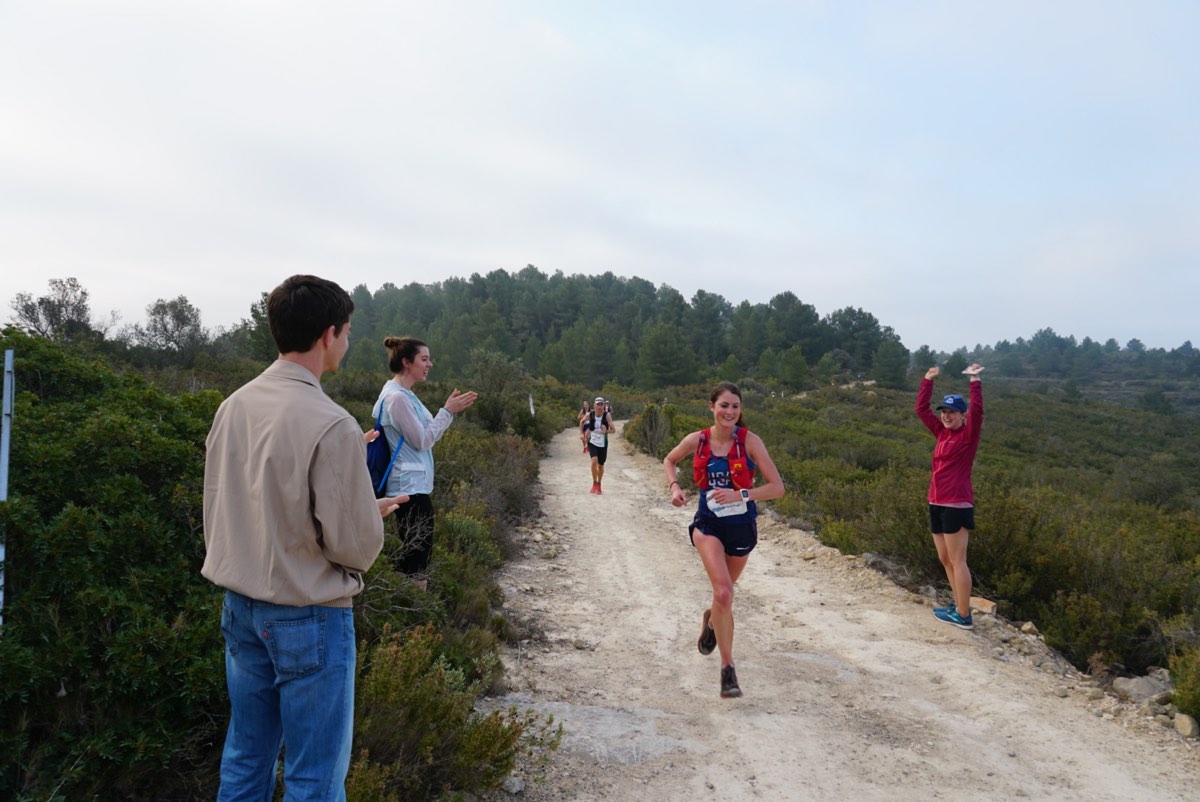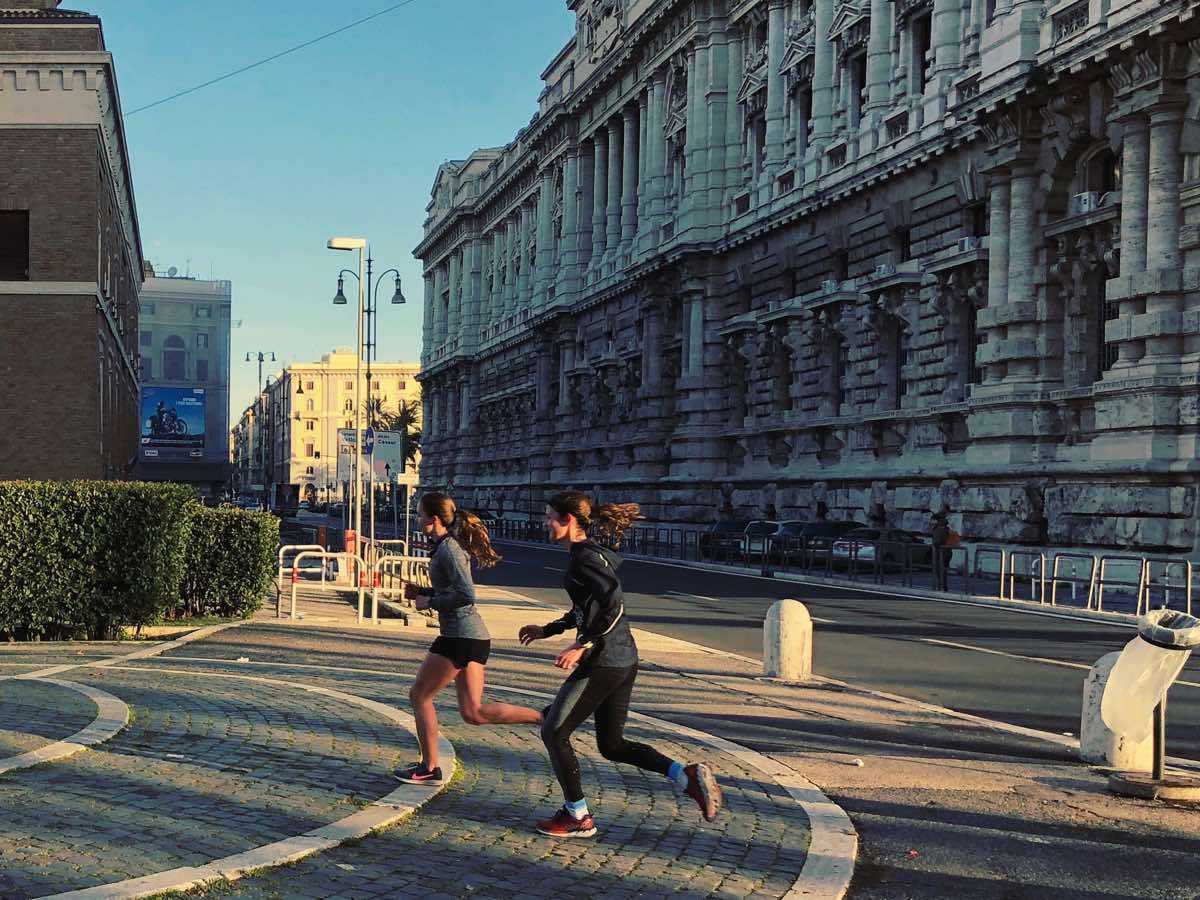I saw my husband David on a mountain top in Spain.
I was running in the 2018 Trail World Championships in Penyagolosa, in the Valencia region. It was a place I had never been before, and David hadn’t either. But he navigated the mountains well that day and showed up at various points to wave at me as I ran by. The element of surprise was wonderful.
“Good job, Bean,” he’d say. My heart would grow three sizes like the Grinch in Whoville, and I’d fly down the other side of the mountain, enlivened by gratitude (and gravity). David and the crew of spouses hurried off, to ascend another mountain, to surprise us again as we ran by.
The Social Animal
It strikes me that the people in one’s life have a lot to do with their successes.
It strikes me that, although I ran 90 kilometers in the mountains by myself that day, I was never really alone.
And it strikes me that Aristotle already thought of all of this, in his emphasis on friendships, his characterization of humans as political by nature (Politics 1253a), and his seamless movements between ethics and politics—the singular and collective. To think of the human person as removed from society is—in the ancient mind—an almost artificial abstraction, reserved only for beasts and gods. We are social creatures—even the quietest among us, and even me.
The Lonely Distance Runner
If there is a literary trope for the long-distance runner, it is a quiet person who spends a lot of time running miles in solitude. This is only true in part.
As a person whose main event is the 100 mile, I admit that I spend a lot of time by myself. (It’s a good thing I am so fun to hang out with! Wait a second…) Racing well is my own goal—for which I take personal responsibility—and I am the one who actually has to run the miles. No one can run them for me.
But when I run well, this is because of the constructive influences of my social context, in addition to my own initiative. I have David (my gracious, speedy husband who paces my workouts and shows up on mountaintops in foreign countries), former coaches, exemplars, family, and the glorious gift of running buddies. Certainly, there are elements of solitude in distance running, but it is not, as a practice, wholly self-sufficient.
In what follows—to highlight the importance of social context, and as an ode to running buddies past—I address a key reason from the classical tradition of why we ought to pursue friendship in the sport: the value of a tether.
Friends and Tethers
“No matter what happens, we will not quit. Agreed?”
“Agreed.”
It’s tempo day, and my running buddy and I are scared. Tempo workouts are not an acute pain that ends as quickly as it arrives, like a sprint workout is. Tempos involve a rising pressure that slowly overtakes you. Suddenly you want to (need to!) capitulate and lie on the sidewalk. But no matter what, we are committed to seeing it through, because we are Dante Alighieri. We are Odysseus.
In Canto XXIV of Dante’s Inferno, Dante is exhausted from climbing the walls inside the city of Dis, so he lies on the ground. Virgil compels him to stand—to “put off sloth” and continue. Dante is strengthened by his friend to overcome fatigue, and he completes the journey. Ideally, Dante could have done this himself—reasoned through his fatigue and pressed on—but he needed the perspective of a wiser friend (Virgil) to speak into his condition. Sometimes the tough love of a friend makes all the difference to make it through something hard.
In Book XII of the Odyssey, we see a different tact: Odysseus tethers himself to the mast of his ship and fills his crewmates’ ears full of wax so that when they encounter the Sirens, their appetites won’t get the best of them and they will stay the course. Ideally, Odysseus would already be so self-regulated that he could withstand the wiles of the Sirens on his own, but he knows he is not. My running buddy and I are not either. We need the accountability of the promise we make to one another to ‘tether’ us to the task so that we will stay.
Good running buddies are like tethers. Like Virgil, they can remind you of the task at hand and provide tough love when it is needed. They fix you in place with a shared intention, so you’re free from the lower parts of yourself that want to quit. C.S. Lewis describes friends as people “side-by-side, absorbed in some common interest” (The Four Loves). I can’t think of a better description of running buddies: We are literally shoulder-to-shoulder and pursuing what is ahead of us. Sure, we run each step ourselves. But perseverance is a lot easier when there’s someone present in the hard moments, to keep us anchored to the goal when we feel weak.
Life in Morehead
Two weeks ago, I moved away from Texas to Kentucky—leaving behind running buddies and friends—and this is why I’ve been thinking a lot about community. The way I see it, I am living my own version of a reverse Early Modern philosophy thought experiment: Instead of moving from a State of Nature into Society (à la Locke or Rousseau), I have been abstracted from my collective context and placed into relative solitude, like Thoreau. (I am being dramatic for effect.)
This means the trope of the lonely distance runner—however artificial an abstraction it is—rings truer to me these days. I am on the hunt for a running buddy—a Virgil to my Dante, or vice versa!
Because it strikes me that the people in one’s life have a lot to do with their successes.
We are social creatures—even the quietest among us, and even me.
Call for Comments (from Meghan)
- Who is your ‘Virgil’ and what exactly are your ‘tethers?’
- Who and what parts of your community help you to be a better version of yourself in both running and life?


